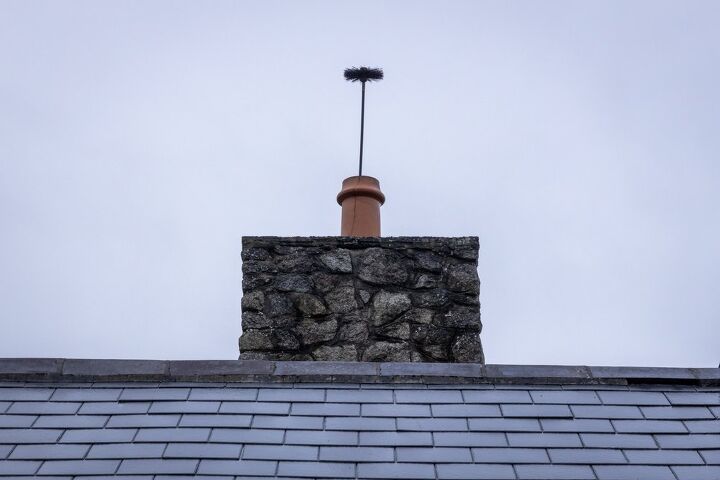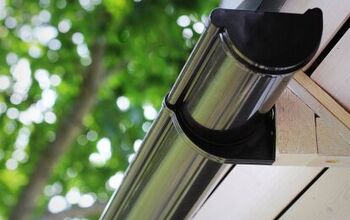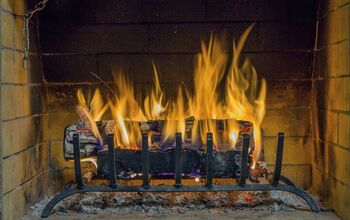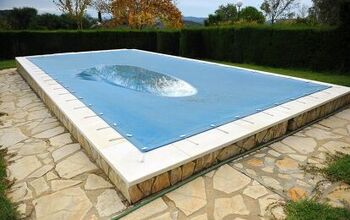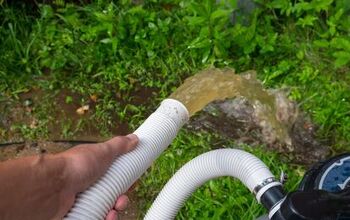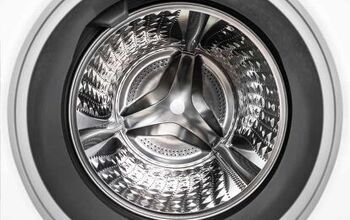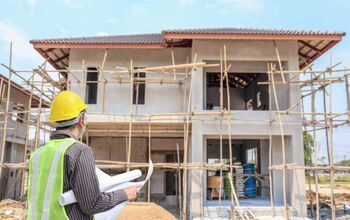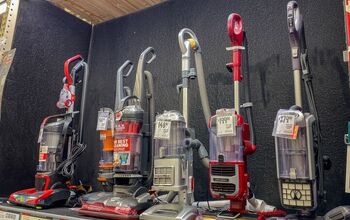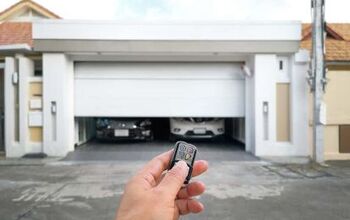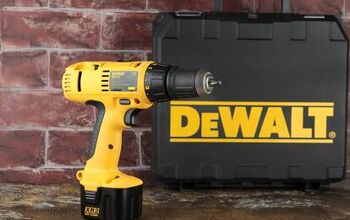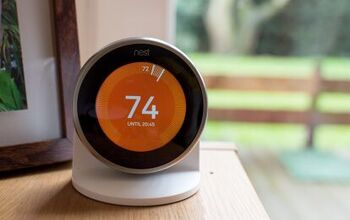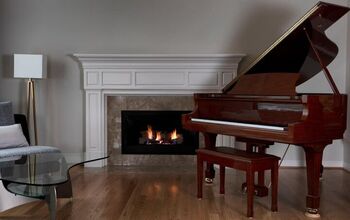What Size Chimney Brush Do I Need? (Find Out Now!)

A chimney can do a lot for your home, including adding aesthetic and an additional heat source. However, as with many home features, they require a bit of maintenance over time. This includes having them cleaned at least once every year.
To find the right brush size for your chimney, you must consider your chimney type, shape, and size. You will want to have a brush that will contact all sides of your chimney flue at the same time, so every vertical surface is completely cleared of debris, nests, soot, and more at the same time.
Cleaning your chimney is a rather straightforward process if you have the proper tools. Let’s make sure you’re equipped to handle your project.
Do You Need Chimney or Fireplace Cleaning or Inspection?
Get free, zero-commitment quotes from pro contractors near you.

How to Find the Right Chimney Brush
Finding the right chimney brush is all about proper measurements. To get those, you need to know a few things about your specific fireplace.
Figure Out Your Chimney Type
There are many different types of chimneys, and which one you have will determine the size and type of brush you need, too.
For example, if you have chimney with a stainless-steel lining, you will need a more flexible brush made from nylon of polypropylene. Conversely, brick and mortar (masonry) chimneys will require a stiff brush perhaps even made from wire.
Consider Chimney’s Shape and Size
To get the best brush for your chimney, you will have to measure the inside of the flue. A chimney flue is the passage that exhausts gases from the appliance to the outdoors. Typically, the brush should be 0.5 to 1 inch larger than the flue itself.
Any larger and you risk it getting stuck and potentially causing damage to the chimney itself. Any smaller and you won’t have the correct pressure to effectively clean all the walls of the chimney.
Standard Chimney Sizes
Chimneys can be separated into two categories: metal and masonry. Which type you have will also have a big impact on the brush size you need to clean it. This is because these types of chimneys differ in size.
Metal Chimneys
These types of chimneys usually have double or triple walls and are smaller than masonry options. The inside diameter will be either 6, 7, 8, 10, or 12 inches. They are used for stoves, central heating, and smaller fireplaces.
Masonry Chimneys
Masonry chimneys, on the other hand, will have an outside diameter of 7.5, 8.5, or 13 inches and an inside are of 31, 41, 70, 99, or 156 square inches. These can also be used for stoves and central heating, but are more often used for larger fireplaces, too.
Reasons to Clean your Chimney
If you have a chimney, you will want to regularly clean it for a variety of reasons. Most importantly, a clean chimney will reduce the risk of health issues and unwanted accidents. Let’s take a closer look at what a clean chimney will do for you and your home.
Prevents Unwanted Fires
Wood fires create a sticky substance called creosote, which is extremely flammable. When this sticks to the inside of your chimney flue, it can cause small fires to break out that will damage the inside of the chimney.
The best-case scenario, in this case, is you’ll have to undergo costly chimney repairs. Yes, that’s the best case. On the other hand, a large enough chimney fire can turn into a full-blown house fire, which can be disastrous for your entire home.
Improves Indoor Air Quality
Over time, smoke byproducts, debris, animal nests, and pests can begin to clog your chimney flue. This will impact overall airflow, which means the carbon monoxide and smoke produced by the fire in your fireplace will have nowhere to go except back into your home.
Carbon monoxide poisoning can be highly deadly at high levels and can pose an immediate risk to your health. Inhaling smoke won’t seem as pressing of an issue in comparison, but this can also be problematic over time. Plus, smoke can damage your furniture, clothing, and carpet, too.
Increases Heating Efficiency
A clogged chimney will impact the amount of oxygen reaching the wood in your fireplace. This will decrease the heat of the burn overall and in turn, increase your heating bills over time.
Beyond the Brush
If you are cleaning your chimney by yourself, you will need some other materials to successfully get the job done. This will help you avoid any risk to your health and damage to the rest of your home during the cleaning process. At the very least, you’ll save yourself a lot of extra cleaning.
Brush Rods
Choosing the right brush is only half the battle. You will also need to choose the right brush rod. Rods are usually 5 feet long and can either be very rigid or quite flexible. The right choice for you will also depend on the factors above: your chimney type, shape, and size.
It’s also important to note that brush rods have connectors on each end, so you can link multiple rods together for more length.
Plastic Sheeting & Tape
Before you start the flue cleaning, you should clear out any wood or ashes in the bottom of the fireplace. Spread out some plastic sheeting, so you can gather all the mess in one place. You should then isolate your fireplace from the rest of the room by taping more sheeting over the fireplace.
Safety Gear
You’ll be cleaning your chimney from the top down, so it’s important to have a reliable way up to your rooftop. Additionally, make sure to grab some quality googles and perhaps a respirator mask to shield yourself from any soot and debris that comes back up through the top.
Related Questions
Do I need to clean my gas fireplace regularly?
It is true that gas fireplaces don’t pose the exact same risks as wood-burning units if not cleaned, but it is still important to inspect and clean them annually. This is because debris, animal nests, and pests themselves can still make your chimney flue their new home.
How much does it cost to have my chimney cleaned professionally?
On average, a chimney sweep will cost you about $200. However, additional services such as removing animals from the flue will cost extra.
Do You Need Chimney or Fireplace Cleaning or Inspection?
Get free, zero-commitment quotes from pro contractors near you.

Conclusion
Maintaining your chimney is just as important as other home improvement projects—gutter cleaning, roof maintenance, HVAC system repairs, etc. And much like those other tasks, it’s also crucial to have the correct supplies for the job.
Most importantly, you must have the right brush size to clean your chimney and keep it in good condition for longer periods of time. If you’re unsure about the measurements of your chimney, get in touch with a local professional before purchasing your brush.

I am a copywriter and editor based in the Las Vegas area with nearly a decade of experience under my belt writing landing pages, cost guides, blog posts, newsletters, case studies, and social media content. I have a degree in Strategic Communication and experience working in both the account and creative spheres. My goal is to always be discovering new interests and bettering myself as a writer and editor along the way.
More by Kerry Souder



